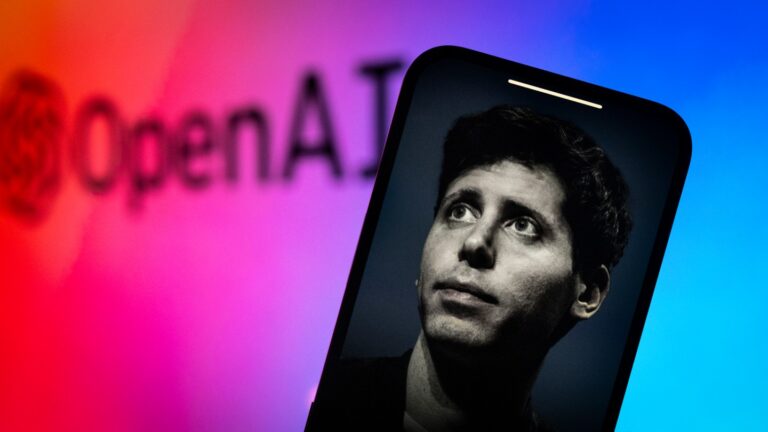
Sam Altman, CEO of OpenAI.
aap Arriens/NurPhoto
OpenAI is partnering with Apple to give the iPhone maker a role on its board, Bloomberg reported, giving the Sam Altman-led company another foothold in Hollywood as the industry grapples with artificial intelligence tools that have the potential to upend production, as well as the livelihoods of creators who fear being replaced by the technology.
In a sweeping deal announced last month, Phil Schiller, Apple’s App Store chief and former marketing executive, will serve as an “observer,” according to Bloomberg. Under the pact, he will be able to attend board meetings and gain insight into the company’s operations (which includes wooing Hollywood to adopt its products), but will not be allowed to vote.
The move follows OpenAI’s February launch of Sora, an AI tool that can create hyper-realistic videos. In response to a text prompt of just a few sentences, it can produce videos of complex scenes with multiple characters, a range of different shot types, and generally accurate details of subjects relative to their backgrounds. Beta testers, who provide feedback to OpenAI to improve the technology, have launched their own projects using Sora as part of the company’s Hollywood blitz.
Apple’s growing partnership with OpenAI further challenges the stance of major studios and the Motion Picture Association, which includes Disney, Warner Bros. Discovery and Netflix among its members, on issues related to the use of intellectual property to train AI systems. OpenAI is facing a torrent of lawsuits from most sectors of the creative industry, including artists, songwriters and music publishers, accusing it of misappropriating copyrighted material to boost its valuation to billions of dollars as it appears to encroach on the entertainment industry.
Asked by CNBC whether AI companies “have effectively stolen the world’s intellectual property,” Mustafa Suleyman, Microsoft’s chief AI officer, said: “Anybody can copy it, recreate it, reproduce it. It’s ‘freeware,’ if you will, that’s what we mean.”
With artificial intelligence being one of the most controversial topics in Hollywood, creators have taken note of comments from tech executives who signal a shift. OpenAI’s CTO said in June that the company’s tools could potentially eliminate jobs. “There may be creative jobs that will disappear, but maybe they shouldn’t have existed in the first place if the resulting content isn’t very high quality,” she said.
Studios are among the most notable groups that have chosen not to sue AI companies that may use copyrighted material in training data. AI image generators are increasingly returning near-exact replicas of movie frames. When asked for “Thanos Infinity War,” Midjourney — an AI program that translates text into hyper-realistic graphics — returns an image of the purple-skinned villain in an image that appears to be lifted from the Marvel movie or promotional materials, with little or no editing. A photo of Tom Cruise in the cockpit of a fighter jet, Top Gun: Maverickis produced in the same way if the tool is asked for an image from the film.
Some of the MPA’s new members, including Apple and Amazon, may have sown discord among studios, which may choose to license their catalog of content to AI companies, as some publishers do. They are among the industry leaders developing and seeking to commercialize the technology.
In response to the Copyright Office’s study of policy issues surrounding the intersection of AI and intellectual property, the MPA found itself on opposing sides of several hot-button issues with SAG-AFTRA, the Writers Guild of America, and the Directors Guild of America. Joined by OpenAI, Meta, and tech advocacy groups, the MPA diverged with unions on whether new legislation is warranted to address the unauthorized use of copyrighted material to train AI systems and the mass generation of potentially infringing works based on existing content. The group argued that existing intellectual property laws are sufficient to address the thorny legal issues posed by the technology. This contrasts with SAG-AFTRA’s call for a federal right of publicity law that would protect members’ rights to profit from their images, voices, and likenesses.
Earlier this month, the Chamber of Progress, a tech industry coalition whose members include Amazon, Apple and Meta, launched a campaign to defend the legality of using copyrighted works to train artificial intelligence systems.


